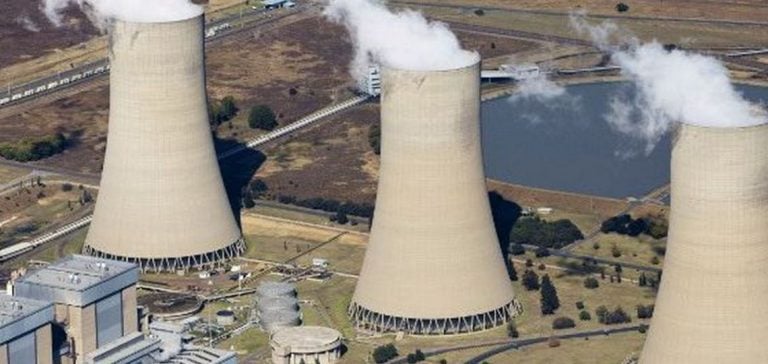Twenty-two countries favoring the development of civil nuclear power are mobilizing to obtain the support of major international financial institutions.
At a meeting held at the Nuclear Energy Agency (NEA), a branch of the Organisation for Economic Co-operation and Development (OECD), they expressed their desire to see development banks and international financial institutions play an active role in financing civil nuclear projects. This call is intended to encourage the development of nuclear infrastructures, notably through the life extension of existing reactors and the construction of new plants, including the deployment of small modular reactors (SMRs).
Today, major financial institutions are reluctant to finance nuclear projects, due to the high costs and perceived risks.
Yet the nuclear sector is now recognized as a central element of decarbonization strategies in many developed countries.
The involvement of financial players in these projects is deemed essential if we are to achieve the targets set by the Paris Agreement, which aims to achieve carbon neutrality by 2050.
Insufficient funding for nuclear power
One of the main barriers to the development of civil nuclear power remains financing.
Nuclear projects require extremely heavy initial investments, which discourages financial institutions from committing to them.
The cost of building a power plant, combined with the risks associated with safety and nuclear waste management, create an environment that is perceived as unattractive to investors.
These financial challenges are slowing down the deployment of nuclear technologies, even though they are considered essential to the energy transition.
However, several countries, including the USA, South Korea and France, believe that nuclear power must play a key role in decarbonizing their economies.
They argue that international financial institutions and development banks, such as the World Bank, need to adapt their investment portfolios to include nuclear power.
This sector, although controversial, can help meet CO2 reduction targets while guaranteeing a reliable and continuous source of energy.
Small modular reactors: a solution for the future?
Small Modular Reactors (SMRs) are one of the focal points of the discussions.
This emerging technology is seen as a more flexible and less costly solution than traditional reactors.
The development of SMRs would make it possible to diversify nuclear energy sources, adapt energy infrastructures to regional needs, and reduce the financial risks associated with major nuclear projects.
However, their deployment requires substantial financial support.
Several countries represented at the NEA are urging development banks to pay particular attention to this technology, which could offer an alternative to the massive development of large-scale nuclear power plants.
While SMRs are still in the development phase, their implementation could enable economies to meet climate objectives more quickly by increasing their energy production capacity while minimizing costs.
Diverging international perspectives
Although the majority of countries represented at the meeting expressed their support for further nuclear power development, some remain reluctant.
Belgium, for example, refused to sign the meeting’s final communiqué.
The country recently announced its decision to phase out nuclear power by 2025, citing safety concerns and the high maintenance costs of existing plants.
Other nations, however, such as France, are pursuing their nuclear strategy with a clear commitment to investing in new infrastructure.
For these countries, nuclear power remains an essential source of energy, capable of guaranteeing energy independence while helping to decarbonize their economies.
Diversification of the energy mix, including both nuclear and renewable energies, is becoming a strategic challenge in the face of recent energy crises.
Triple nuclear capacity by 2050
The NEA believes it is imperative to triple global nuclear capacity by 2050 to meet the carbon neutrality targets set at COP21.
This scenario will require not only massive investment in new power plants and SMRs, but also an overhaul of the financial frameworks governing the energy sector.
Discussions on the financing of civil nuclear power are taking place against a backdrop of growing energy tensions.
Russia’s invasion of Ukraine has exacerbated European concerns about energy supply, prompting many countries to rethink their strategy of dependence on fossil fuels.
Nuclear power, with its low CO2 emissions, appears to be a necessary alternative to guarantee energy autonomy while limiting environmental impact.
International financial institutions and development banks are now being called upon to play a crucial role in this strategic shift.
While the costs of nuclear development remain high, their participation could enable a more equitable distribution of financial risks, thus facilitating the acceleration of nuclear projects worldwide.






















